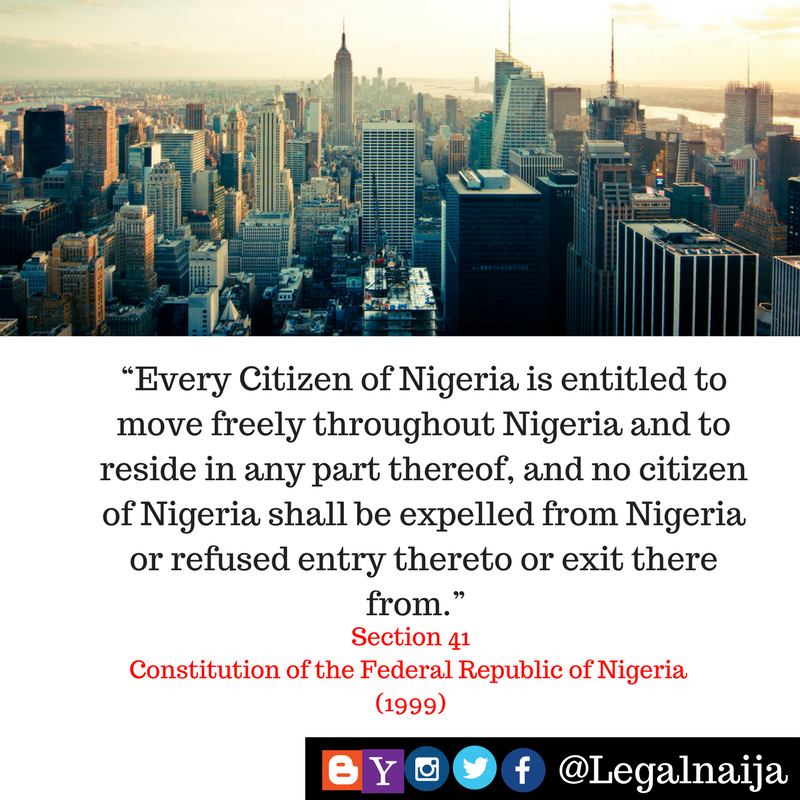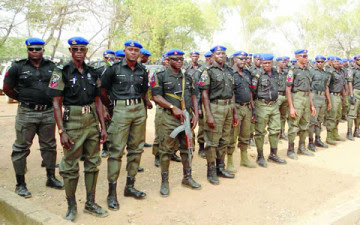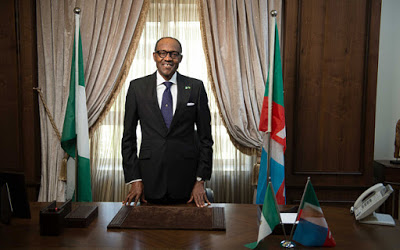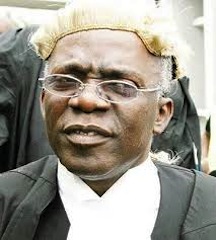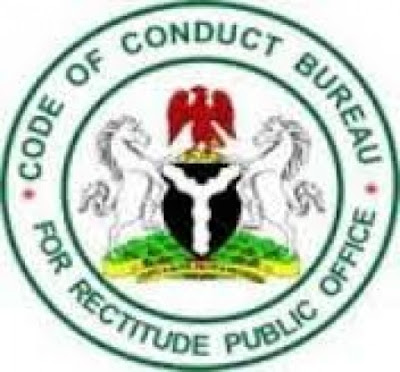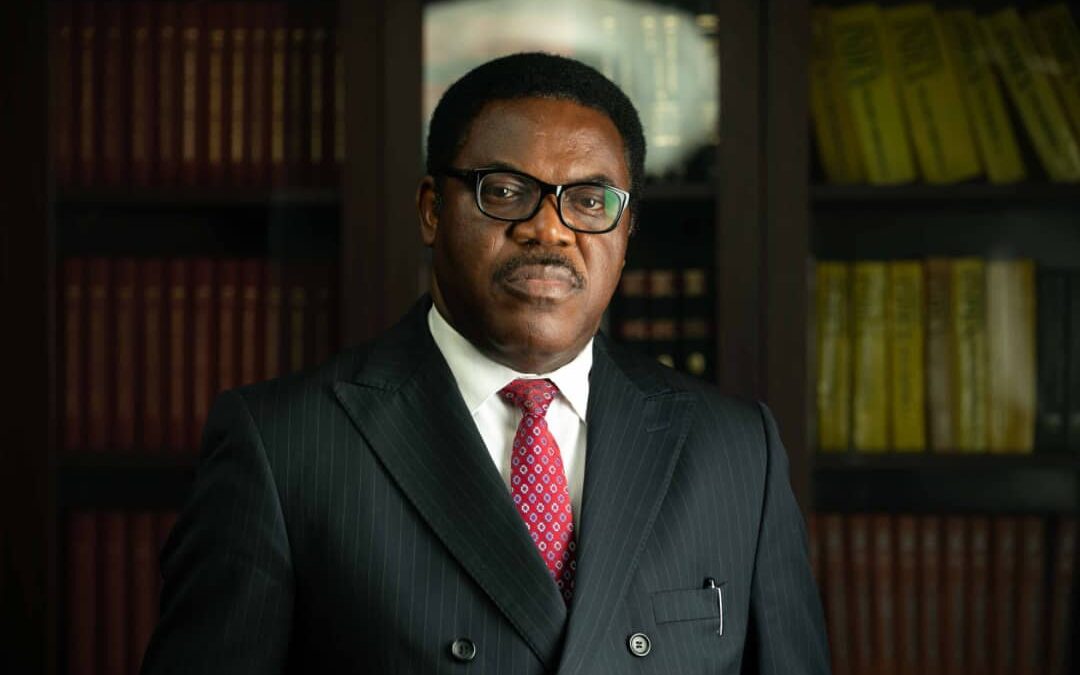
A Brand New Constitution For The Peace And Stability Of Nigeria: The Inconvenient Truth | Dele Adesina, SAN, LL.M, FCIArb
Past general secretary, Nigerian Bar Association. Presented on 2nd June, 2021 at the public hearing of the House Of Representatives Committee on the review of the 1999 constitution of the Federal Republic Of Nigeria 1999 (as amended).
Protocols
INTRODUCTION
Quite often, I meditate on the affairs and the future of this nation. Each time I do this, I believe like many others in this Country, become very apprehensive of the future of the Country even though I am a man of faith. As a messenger of hope and confidence, I try to suppress and overcome my fears by faith. However, I do recognize that faith does not deny the facts. Faith only insists that the fact do not represent the final position if something is done to change that position. It is an undeniable statement that faith without work is dead.
The situation in Nigeria today to face the reality is precarious from all dimensions.That is not the focus of my short presentation, But I dare say that all that we are seeing today are symptoms, products and reminiscents of a faulty foundation. If the foundation be destroyed, God says there is nothing the righteous can do. The point was well made yesterday by the RT. Hon Speaker, Mr. Femi Gbajabiamila in his opening speech and this is very fundamental that “the foundation of any nation is its constitution and that the Constitution of Federal Republic of Nigeria 1999 as amended is short of standard. That the Constitution is a product of a horrid National compromise to return the military back to the barracks.”
WHAT IS A CONSTITUTION?
In Nigeria, the Supreme Court has said in AG Federation Vs. AG Abia State that “It must be remembered that the fountain of all laws is the Constitution. It is the composite document setting out how the Country is to be held together. It is not a document to be read with levity or disdain …. It is the very foundation of the nation’s existence.”
It is the Supreme law in which the principles of fundamental nature for a nation are established.” It is supreme and superior to any other law. Indeed, it determines the validity or otherwise of governmental actions.
The Constitution of the Republic of South Africa, 1996 inSection 2 states “This Constitution is the supreme law of the Republic of South Africa. Law or conduct inconsistent with it is invalid and the obligations imposed by it must be fulfilled.”
Article 6 Clause 2 of the Constitution of the United States of America says “This Constitution and the laws of the United States which shall be made in pursuance thereof and all treaties made or which shall be made under the authority of the United States shall build the supreme law of the land….. any thing in the Constitution or law of any State to the contrary notwithstanding.”
Similarly, Section 1(1) of the 1999 Constitution FRN as amended also established the supremacy and the binding force of the 1999 Constitution I submit in an inelegant manner unlike the very vocal and direct provision of the South African Constitution I cited above.
THE INCURABLE VICES OF THE 1999 CONSTITUTION AS AMENDED
- The late constitutional Lawyer Chief Rotimi Williams SAN said on the 18th of June 1999 at a Seminar organized by the NBA Ikeja on the 1999 Constitution that “The 1999 Constitution is a document that tells lie against itself.”
- Itse Sagay SAN in his characteristics self was more categorical when he described the Constitution as a fraud, contending that the people of Federal Republic of Nigeria never gave to themselves or resolved to give to themselves the 1999 Constitution. I will expantiate on this later.
- Another foremost constitutional Lawyer, Prof. Ben Nwabueze SAN has described the Constitution as an illogicality contending that the 1999 Constitution is a unitary constitution for a Federal system of Government.
- My Learned Brother Silk and Constitutional Law expert, S.T. Hon, SAN, had this to say in his book titled‘Constitutional Law and Migration Law’: “there is no doubt that the 1999 Constitution was enacted by the military. That the apex Court merely imputed this exercise to the Nigerian people.”
- In a Paper titled “Preventing the Breakdown of Democracy in Nigeria – an overview of the 1999 Constitution”presented by me in year 2000, I said “The 1999 Constitution is in my view nothing more than a legacy bequeath on us by the Military neo colonial masters at the eve of their departure on the 29th of May, 1999, in a fashion reminiscent of a will that takes effect after the demise of the testator…”
Many other well informed Nigerians, too numerous to mention have said repeatedly based on the vices stated above and many others that the 1999 constitution lacks legitimacy and popular acceptability fundamentally because of the circumstances of its making and because of the several positions in it which are alien to all known principles of federalism.
First, it is to be recalled that we have successfully carried out 4 Amendments through 1st, 2nd, 3rd and 4th Alteration exercises. Several Sections of the Constitution were altered in the course of the four (4) exercises, all these within approximately a period of 21 years of the existence and operation of the Constitution. The question is if we find it desirable to embark on another exercise as profound and expansive as the one being contemplated, whether it is not far better and more desirable to think about a holistic replacement of the 1999 Constitution?
Second, I noted with satisfaction that some of the issues scheduled to be considered in the review exercise constitute fundamental and existential issues for Nigeria as a safe and secured Nation, as a Federation and lastly as a successful Constitutional Democracy. I am referring here to such items as devolution of powers, Federal Structure and true Federalism, the Nigeria Police and Nigerian Security Architecture, comprehensive Judicial Reform, Local Government autonomy and the National Assembly itself. Once these foundational issues are going to form the cornerstone of this review, the question is whether it is not better and preferable to garner the thoughts, feelings, visions and aspirations of the Nigerian people with a well articulated, negotiated agreement towards embarking on the process of making a new Constitution for Nigeria to mark a new beginning.
Third, the Constitution was described as a fraud and a document that lies against itself at a Seminar on the new Constitution organised by the Nigerian Bar Association, Ikeja Branch, on the 18th of June, 1999 because the Constitution purportedly stated in its opening recital that “We the people of the Federal Republic of Nigeria having firmly and solemnly resolved… do hereby make, enact and give to ourselves the following Constitution.” Since the enactment of the 1999 Constitution, the question has been asked repeatedly, where and when did that resolution take place? How did the people of the Federal Republic of Nigeria arrive at that firm and solid resolution purportedly expressed in the recital to the 1999 Constitution?
It must be recalled that the 1999 Constitution of the Federal Republic of Nigeria was midwifed by the then Military Government of General Abdusallam Abubakar, GCFR, pursuant to the promulgation of the Constitution of the Federal Republic of Nigeria Decree No. 24 of 1999. The question is whether Decree No. 24 of 1999 can take the place of a referendum by the people in the making of a people’s Constitution recognising that the ultimate sovereignty lies with the people?
FAULTY FEDERAL STRUCTURE
Inthe case of Attorney-General of Abia State v. Attorney-General of the Federation, the Supreme Court stated the meaning and scope of Federalism in the following words: “Federalism as a legal concept generally connotes an Association of states formed for certain common purposes, but the State retains a large measure of their original independence or autonomy. It is the co-ordinate relationship of power between the individual States and the National Government which is at the centre.”
The Supreme Court went further to say that “Federalism as a viable concept of organising a pluralistic society such as Nigeria for governance does not encourage so much concentration of powers in the centre which is the Federal Government. In federalism, the component states do not play the role of errand boys.” The point was also made by the Supreme Court in Attorney-General of Lagos State v. Attorney- General of the Federation, that each Government in a Federation “exists not as an appendage of another Government but as an autonomous entity in the sense of being able to exercise its own will in the conduct of its affairs, free from direction from another Government.” None of these essential characteristics of a true Federalism can be said to exist in Nigeria in real and practical terms.
I am fully persuaded by the opinion of Professor Ben Nwabueze, SAN, that “one single Constitution for all the governments involved both Federal and State in a Federation is a manifest contradiction.” For instance, in 1960, we had the Independence Constitution. There were separate Constitutions for both the Federation and the Regions as separate Schedules to the Independence Order-in-Council. Similarly, the 1963 Republican Constitution made provisions for the establishment of regional Constitutions for the three regions that composed the Federation at the time. Section 5 (1) thereof stated as follows: “Subject to the provision of this Constitution (Federal Constitution) the Constitution of each region shall have the force of law throughout the region.”
There was also a specific provision in that Constitution which stated that the Executive Authority of a Region (which extended to the execution and maintenance of the Regional Constitution) shall be exercised so as not “to impede or prejudice the exercise of the Executive Authority of the Federation or endanger the continuance of the Federation.”
It thereforefollows that in an ideal Federal system, apart from sharing of powers, both the Federal and the Federating units must have their own Constitutions. The question is whether we truly want a Federal or a Unitary System of Government in Nigeria and whether an elaborate discussion on the desirability or otherwise of this initiative can be undertaken under an amendment process such as the one being contemplated?
Everyone in this Nation today accepts the fact that the Nation is faced with a lot of structural and systemic challenges, a good number of which are the products of the inadequacies of the 1999 Constitution. It is no longer news that there has been over concentration of powers at the centre at the detriment of the federating units. Indeed, over the years the centre has been grabbing and grabbing powers at the expense of the federating units. The long years of military adventure in governance has not helped the situation. For the sake of comparison, the 1954 Constitution donated 43 items to the centre in the Exclusive Legislative List, 45 items in the 1960 and 1963 Independence and Republican Constitutions, 66 items in the 1979 Constitution and 68 items to the centre in the 1999 Constitution as amended.
The reality of our Constitutional structure and power sharing today is that simple items such as census, labour, trade unions and industrial relations, mines, minerals, natural gas, drugs, evidence, trade and commerce are in the Exclusive Legislative List. Not to talk of the Policing system. This is in addition to 30 items under the Concurrent Legislative List for which both the Federating States and the Federal Government have powers to make laws subject of course to the supremacy of the Federal Law over the State Law on any such matter where one is inconsistent with the other.
A CENTRALIZED AND MONOLITIC POLICE STRUCTURE – AN ABSURDITY
The issue of Nigeria Police and the security architecture in particular is very germane. It is not an over statement to say that the greatest challenge confronting our Nation today and particularly the security and sustenance of our Constitutional democracy is that of insecurity. I believe that nobody is left in any doubt that the centralized and monolithic Police structure established by Sections 214 and 215 of the Constitution can no longer guarantee the security of this Nation and its component parts and this explains why the other security agencies like the Military, the Airforce and the Navy are now directly involved in the maintenance of law and order in different parts of the country.
PARTICIPATORY/ PEOPLE DRIVEN CONSTITUTION
The process of making the 1999 Constitution as stated earlier falls short of guaranteeing its popular legitimacy and acceptability. No amendments no matter how many times can in a retroactive manner cure this foundational defect in the making of the 1999 Constitution. It remains a military-donated Constitution. A deliberate effort to embark on the making of a new Constitution will offer an opportunity to Nigerians for popular participation in the Constitution making process of their Country.
Scholars of Constitutional Law have argued and I wholeheartedly agree with their reasoning that the scope of making a Constitution should not be determined by the rulers or those who govern them. Professor Julius Ihombere, talking about the value of participatory/ people driven Constitution making approach had this to say: “political elites and leaders have not come to fully appreciate the importance of a participatory or people driven Constitution making approach to their own survival in office and to the reduction of conflicts and pressures on the State, its institutions and custodians. Asides from using the process to resolve burning national issues, a participatory approach is probably one of the best panaceas to instability, public cynicisms and alienation from government. It is equally the best way to cultivate a culture and tradition of reliance on dialogue and consensus rather than the result to violence in the political process.”
The contemporary challenges being faced in the Nation today such as the wide spread insecurity, various sectional loyalty and allegiances instead of loyalty and commitment to the cause of the Nation on the basis of nationalism and patriotism, lack of properly focused political system cloaked in ideology and the uncountable number of political parties jostling for power, the agitation for true federalism, both fiscal and structural, make the call for a new Constitution not only worthy of consideration but I submit compelling and inevitable.
It is my humble view that the time to take the bull by the horn and drive a wholesale replacement of the 1999 Constitution through the instrumentality of an autonomous and independent body is now. Such body must emanate from the people. Like I stated earlier the ultimate sovereignty lies with the people. It is my contention that we have gotten to a point in Nigeria when we should subject the Nation to the sovereign will of the people by making a people driven Constitution.
ARGUMENT AGAINST PROPOSAL FOR A NEW CONSTITUTION
I am not unaware of the argument that we cannot have two sovereigns in a nation in the sense of having a Sovereign National Conference as well as a Sovereign Government and Sovereign National Assembly. I am not here to advocate for a sovereign national conference. Any conference or assembly of people can drive a new constitution for Nigeria. Going by the example we have seen in South Africa, I think both can coexist without one impeding or obstructing the workings of the other. Example they say is better than precept. Let us draw example from those who have successfully passed through this stage before and came out very successfully.
Let it be recalled that the agitation and resistance against the Apartheid System of Government in South Africa was what led to the setting up of the Convention for Democratic South Africa (CODESA). At the time of formulating a new Constitution by the Convention for Democratic South Africa (CODESA), the Republican Constitution of South Africa 1961 was in place and a democratically elected government led by the National Party was also in place.
History recorded that it was the Convention for Democratic South Africa that fashioned a new Constitution that ultimately removed discrimination and all forms of apartheid rule in South Africa. It is time for us to recognise that no problem is ever solved by technically avoiding the problem. Let us collectively resolve to confront our constitutional problem, resolve it by taking the bull by the horn.
It will be a great day for Nigeria if we can take this giant step to fashion out a new Constitution that will satisfy the yearnings, aspirations and inspirations of all Nigerians rather than embarking on limitless amendments. A Constitution that will enjoy a buy-in of all Nigerians. A Constitution that Nigerians can take ownership of by their participation in the process of its making. Somebody says that no matter how long you persist on a wrong route, you can never arrive at your desired destination. The time for us to take our destiny in our own hands is now. With all its noticeable inadequacies, the 1999 Constitution has tried to give us a Constitutional democracy albeit in a limited sense. We can all see the failures that are threatening the survival of our democracy. If it is not Panadol, it cannot do the work of a Panadol. The flaws of the Constitution of Federal Republic of Nigeria 1999 cannot, no matter how many alterations be cured.
CONCLUSION
In conclusion, I cannot agree less with Professor Julius Ihombere when he stated in his paper titled ‘Towards Participatory Mechanisms and Principles of Constitutional Making in Africa’ published in 2000 said: “rather than just seeing the Constitution as a power map focusing exclusively on the question of power (which is what we may achieve by the various Amendments) we must see the Constitution as an instrument for addressing pressing socio-economic, cultural and economic questions as well as an embodiment of consensus around constitutionalism.”
The Constitution must be seen and regarded as “an expression of the general will of the Nation, a reflection of its history, fears, concerns, aspirations, vision and indeed, the soul of the Nation. Furthermore, the Constitution is not just an elite affair rather it must be seen as a single document under which diverse and ideologically opposed people unite and rally in defence of democracy.”
The Chairman of this Review Session and through you the Rt. Hon. Speaker of the House of Representatives of the Federal Republic of Nigeria, a new Constitution will translate: “We the people of the Federal Republic of Nigeria having firmly and solemnly resolved… do hereby make, enact and give to ourselves the following Constitution” from make believe into reality. May I conclude by saying that if we must decisively address the inadequacies, distortions, confusions, fundamental omissions and the inherent contradictions and illogicalities in the 1999 Constitution of the Federal Republic of Nigeria, as amended, if we must establish a true and functional Federation that will guarantee National cohesion,our focus must be to give to ourselves a new Constitution. This is the truth, no matter how inconvenient.
THE END

